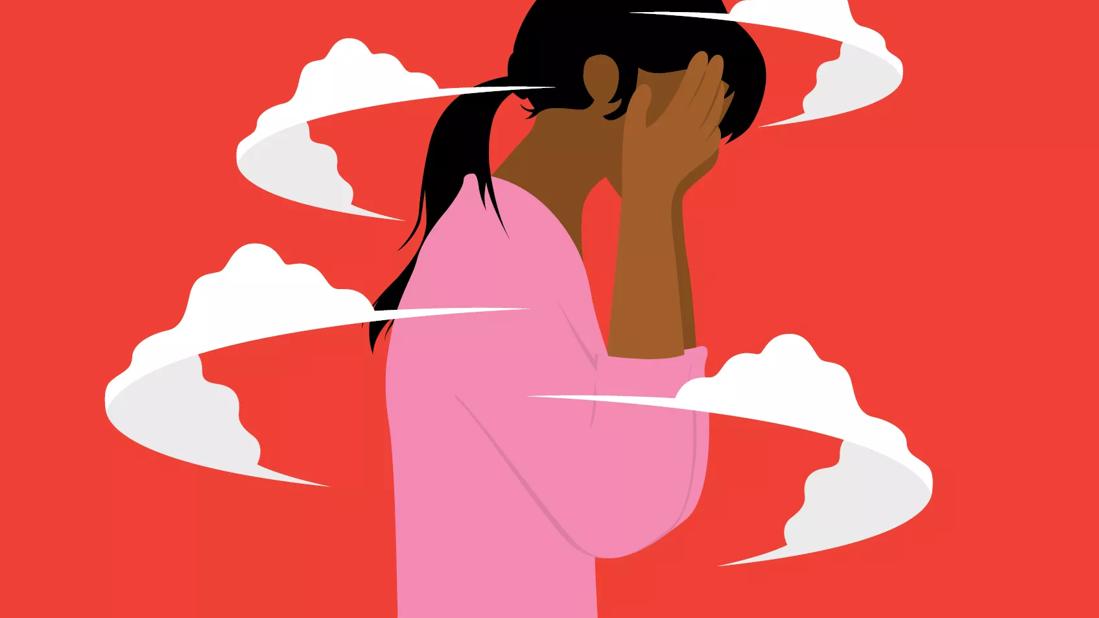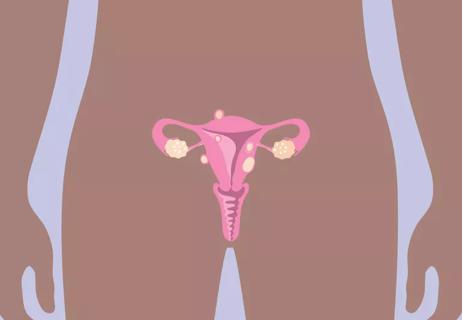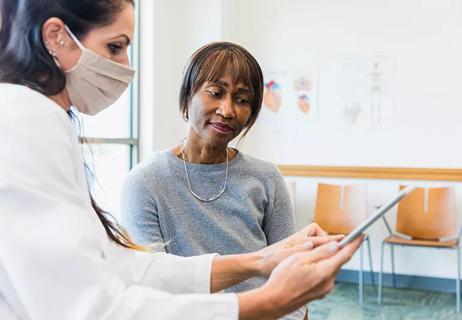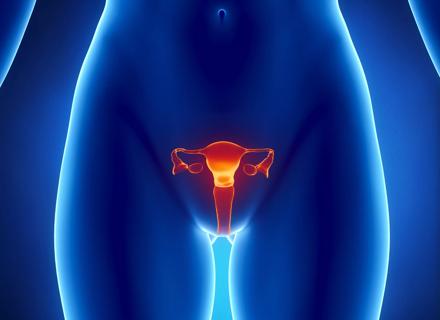If you’re living through fatigue due to fibroids, there are ways to cope

Uterine fibroids affect anywhere from 40% to 80% of women. And while these noncancerous growths on your uterus are common, they affect everyone differently. For some, symptoms might be mild or unnoticeable, while for others, they can have a major impact on your day-to-day life.
Advertisement
Cleveland Clinic is a non-profit academic medical center. Advertising on our site helps support our mission. We do not endorse non-Cleveland Clinic products or services. Policy
These benign growths of the muscle and connective tissue aren’t necessarily a cause for concern on their own — especially if they don’t cause any symptoms. But some women with fibroids experience an array of issues that can cause significant discomfort. Luckily, there are ways to address these symptoms to make living with fibroids easier.
Some general symptoms fibroids cause include:
In addition to these, fatigue is a common symptom you may experience with uterine fibroids. Ob/Gyn and women’s health specialist Linda Bradley, MD, explains why uterine fibroids cause this symptom and what you can do to help manage your fatigue.
Fatigue is something many of us experience — but there’s a specific reason you may be feeling dizzy, nauseous or tired due to uterine fibroids. This feeling of fatigue is related to the loss of blood you may be experiencing due to heavy periods brought on by fibroids.
In most cases, it’s expected to have some heavy bleeding during your menstrual cycle. However, Dr. Bradley explains that too much excessive bleeding can become a reason for concern. It’s helpful to know your cycle and how much bleeding you can expect each month.
Advertisement
Some signs that you may be experiencing heavy period flow include:
If you’re experiencing any of the above symptoms, it’s important to meet with your healthcare provider so you can better understand how to address them. If you’re experiencing heavy menstrual bleeding from fibroids, there’s a chance you have anemia and need to see your healthcare provider.
If the fatigue and related symptoms you’re experiencing are due to heavy blood loss, there’s a chance you may be anemic, or at risk of becoming anemic. Anemia is when you don’t have enough red blood cells to deliver enough oxygen throughout your body.
There are many different types of anemia, but a common one is iron-deficiency anemia, which happens when your iron levels are too low and your body isn’t able to make hemoglobin.
You may have iron-deficiency anemia you’re experiencing:
If the fatigue you’re feeling is physical rather than psychological in nature, it’s most likely due to anemia from blood loss. The first step to managing this fatigue is to get more iron into your system.
One of the best ways to prevent and relieve iron deficiency anemia is to adjust your diet. Try incorporating more foods that are high in iron into your daily meals.
“There’s a real variety of high-iron foods,” says Dr. Bradley, so the good news is you won’t be short on choices.
Foods that have high iron content include:
Another way you can increase your iron levels is by taking iron supplements. These supplements don’t need a prescription, can be taken before bed and are a good way to increase iron levels in your body. You can take most iron supplements daily. Dr. Bradley also recommends taking vitamin C, as this can help your body absorb iron. You can also try eating foods that are high sources of vitamin C, including lemons, strawberries, oranges and broccoli.
Another option is receiving iron through an intravenous infusion. This may be prescribed by your healthcare provider if your anemia is more extreme. In these cases, you’ll visit your doctor’s office and receive a dose of iron through an IV. This is usually recommended if you aren’t able to take iron supplements by mouth or if it’s an extreme case of anemia.
Advertisement
The goal of this treatment is the same as taking iron supplements. According to Dr. Bradley, once your body starts to get the right amount of iron, your fatigue from heavy bleeding should lessen.
Adding iron to your system through diet and supplements is an excellent way to help reduce fatigue. However, in some cases, especially when your menstrual bleeding is very intense, iron alone may not be enough. Dr. Bradley points out that even so, heavy bleeding is treatable and it’s important to talk to your healthcare provider to know all of your options.
There are some medications and therapies that can lessen heavy bleeding — and some related symptoms, including fatigue.
Options include:
Ultimately, Dr. Bradley stresses that your chosen treatment for fibroids should always begin with the most minimally invasive option first, and will depend on various factors, including:
Also, when considering any kind of surgery, make sure to speak to a reputable surgeon who has plenty of experience in the area of uterine fibroids.
Advertisement
If you’re experiencing heavy bleeding due to uterine fibroids, this may also cause some mental stress that can be exhausting. For example, you may feel anxious about monitoring your heavy flow — checking for spotting frequently or regularly having to change your pad or tampon.
If so, you may want to try one of the newer menstrual products on the market such as a menstrual cup, which can hold twice the amount of a super-absorbent tampon. Or period underwear, either on its own or as a backup to your tampon, may help put your mind more at ease.
“For some women, the very quality of their lives is so stressed by the unpredictable nature of their bleeding,” says Dr. Bradley.
If you’re feeling an overwhelming amount of psychological stress due to your period, it’s important to talk to your healthcare provider about the best way to manage these feelings.
In general, when experiencing fatigue related to uterine fibroids, be assured that there are options available to help you feel more energetic and at ease. Every case of uterine fibroids is different and unique, so be sure to talk to your healthcare provider about the best solution for you.
Advertisement

Sign up for our Health Essentials emails for expert guidance on nutrition, fitness, sleep, skin care and more.
Learn more about our editorial process.
Advertisement

To help manage symptoms, switch to more absorbent period products, make healthy lifestyle changes and explore treatment options

Depending on their size, these noncancerous growths can create an abdominal bulge

Depending on size and location, they can affect your rectum, stomach, bladder and kidneys

Eating more fruits and veggies and less red meat could help prevent or shrink fibroids

How uterine fibroids can change with your body

Treatments can help, besides a hysterectomy

It’s important to angle it toward your rectum or back, along the natural curve of your vaginal canal

Yes, you can pee with a tampon in; no, they won’t stretch out your vagina or make cramps worse!

Even small moments of time outdoors can help reduce stress, boost mood and restore a sense of calm

A correct prescription helps your eyes see clearly — but as natural changes occur, you may need stronger or different eyeglasses

Both are medical emergencies, but they are very distinct events with different causes